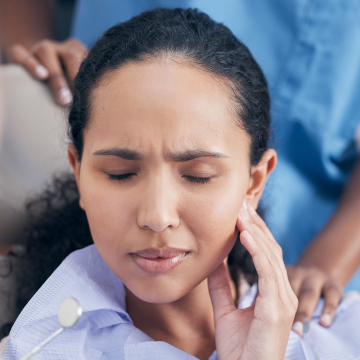 SANTA CRUZ, SCOTTS VALLEY CA
SANTA CRUZ, SCOTTS VALLEY CA
In the United States, few things are considered more attractive in a person’s appearance than teeth that are healthy, white, and strong. This has not always been the case, nor is it the case everywhere: the Japanese once favored ohaguro, or black teeth (especially for women), and the trend there now is yaeba (“double teeth”), in which the canines overlap the front teeth, giving the canines a prominent and almost vampire-like appearance.
Nevertheless, in America, straight teeth are the ideal. Sometimes, however, nature and genetics do not always cooperate to give an individual the perfectly aligned teeth that they might wish to have. Fortunately, teeth can be straightened through braces and clear aligners, which all fall under the general term of “orthodontics.” Simply put, orthodontics are dental procedures that straighten the teeth.
Orthodontics can improve appearance, and for that reason alone, such treatment is often sought. For those who are self-conscious about their smile and overall appearance, the boost in self-esteem can easily repay the cost and effort of orthodontia. Moreover, sometimes teeth that are not perfectly aligned can cause speech irregularities, and putting them into proper form can help with that (bringing all the advantages that come with proper pronunciation). But in addition to the gains in psychological well-being, orthodontics can have several additional benefits to one’s oral health. What are some of these?
Oral health benefits of orthodontia – ease in chewing and correct bite
The technical term for teeth that are poorly aligned is “malocclusion,” which comes from the Latin words mala (“bad”) + occlusa (“closed”). As its origin implies, teeth that are poorly aligned often prevent the mouth from closing properly, which can affect the bite. Malocclusions such as crossbite, crowding, or open bite can make it very difficult to eat certain foods. They can also greatly increase the chance of biting the tongue or cheek. And worst of all, a misaligned bite can cause teeth to come together too hard and with too much force, potentially breaking them. These experiences, or the constant worry about them, can be fixed with orthodontia.
Oral health benefits of orthodontia – protect the teeth from damage and wear
Malocclusion can take the form of teeth protruding further than what is healthy. In addition to affecting the bite, the tendency of the teeth to stick out means a greater risk of damage in accidental blows to the face, as the protruding teeth don’t have the “reinforcement” of properly-aligned teeth behind them.
Furthermore, even if poorly aligned teeth do not break upon biting, the poor alignment can cause teeth to grind against each other when chewing. This can not only feel unpleasant but can gradually cause the enamel to wear down and expose the dentin (the internal tissue of the tooth). This makes the tooth far more vulnerable to the acid produced by the bacteria that naturally occurs in the mouth, which can expose the nerve and make the teeth more sensitive to hot, cold, and sugar. Correcting their alignment reduces this wear and makes for a more pleasant and less painful state of oral health.
Oral health benefits of orthodontia – reduce risk of TMJ
Teeth that are not healthily aligned run the risk of grinding while chewing. They also tend to make people much more likely to grind their teeth in their sleep. This condition is called bruxism, which is potentially dangerous for the enamel of the teeth. It can also cause headaches.
Worse, whether it is unconscious or comes about through the conscious act of chewing, tooth grinding causes strain on the temporomandibular joints (TMJ). These are the joints on either side of the mouth that allow the lower jaw to open and close freely. Any strain on them can cause pain while talking, yawning, chewing, and singing. Straightening the bite can significantly reduce the risk of TMJ disorder.
Oral health benefits of orthodontia – easier to clean
Teeth that are not in perfect alignment can be much more difficult to clean, especially if they overlap. Since brushing and flossing sweep the bacteria out of the mouth, teeth that are not easily accessible by these techniques can allow for bacteria to build up on the teeth and form a film called plaque. This not only contributes to bad breath, but the bacteria in the plaque now gets emitted directly onto the teeth, wearing holes in them called cavities and contributing to dental decay.
For any of these reasons, orthodontia may be of interest. Ebrahimian Integrative Dentistry provides orthodontic services to any and in Scotts Valley and the Santa Cruz area. For more information, call (831) 824-5111.



